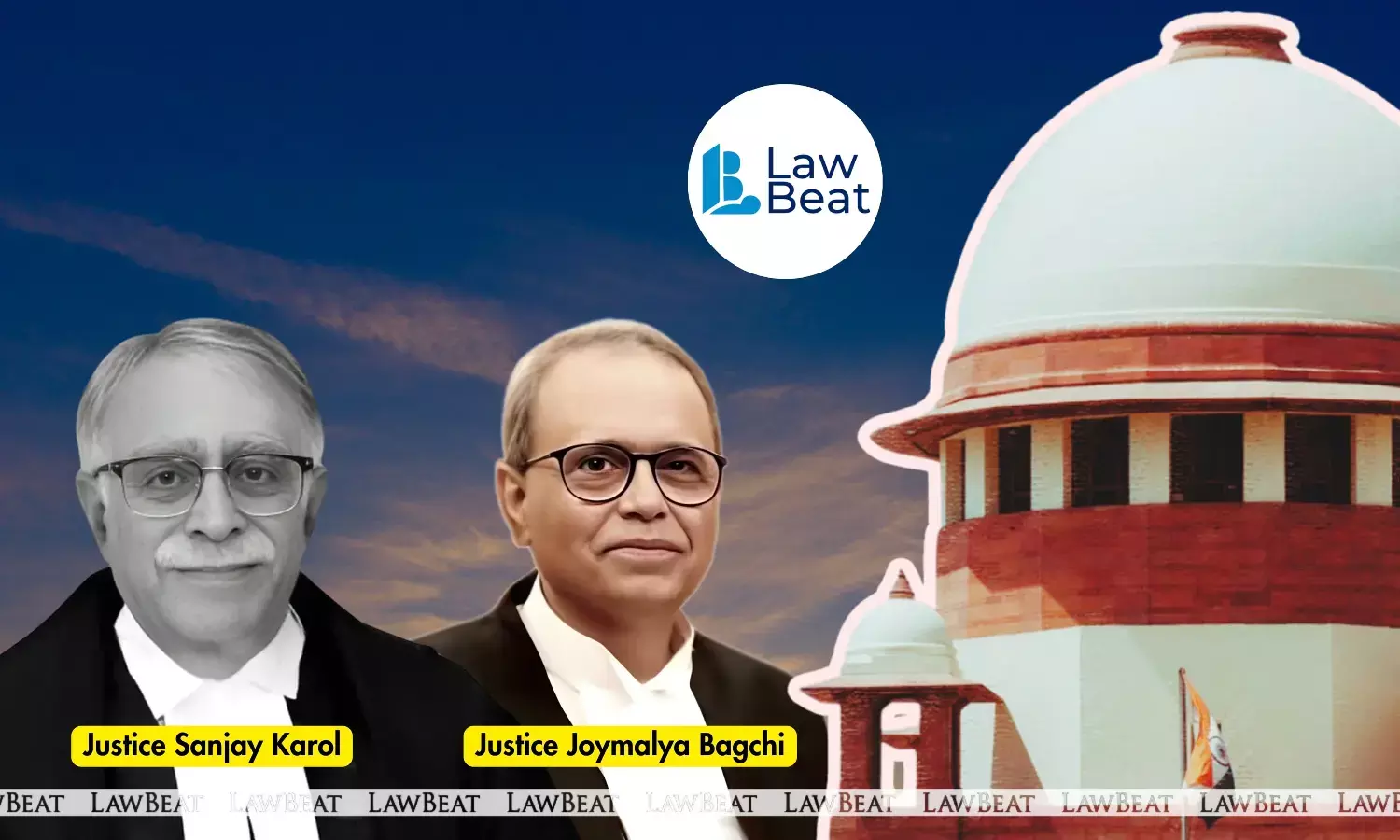Denial of inheritance to natural heir in Will requires closer scrutiny: Supreme Court

The Supreme Court said on July 17, 2025, that a Will can be accepted as genuine only when the person propounding it successfully dispels all suspicious circumstances surrounding its execution and satisfies the court that the testator had acted voluntarily, without any coercion or undue influence.
A bench comprising Justices Sanjay Karol and Joymalya Bagchi emphasized that unlike other documents, the execution of a Will demands closer scrutiny as the testator is no longer alive to testify. This, the court noted, places a solemn duty on the judiciary to ensure that the Will is proven in accordance with law.
"Onus lies on the propounder not only to prove due execution but dispel from the mind of the court, all suspicious circumstances which cast doubt on the free disposing mind of the testator," the bench said.
The top court pointed out that a Will, like any other document, must comply with the legal standards laid down under Section 63 of the Indian Succession Act, 1925, and Section 68 of the Indian Evidence Act, 1872, particularly the examination of at least one attesting witness.
The case involved a property dispute over a Will allegedly executed by Maya Singh in 1991, bequeathing his land to his nephew, Gurdial Singh. The Trial Court and First Appellate Court upheld the Will and declared the nephew as the rightful owner. However, the Punjab and Haryana High Court overturned these findings, noting the Will’s failure to mention or explain the disinheritance of Maya Singh’s wife, Jagir Kaur, raised suspicion. Jagir Kaur, who lived with Maya Singh until his death, was ultimately declared the lawful owner and in possession of the land. The Supreme Court upheld the High Court's decision.
It observed that a holistic view of the circumstances, including the complete omission of the wife’s existence in the Will, indicated that the document may not have been a true reflection of the testator’s ‘free will’, but rather was dictated by the appellant.
"We have no hesitation to hold that non-mention of first respondent or the reasons for her disinheritance in the Will, is an eloquent reminder that the free disposition of the testator was vitiated by the undue influence of the appellant," the court held.
Although the bench clarified that disinheriting a natural heir does not, in itself, indicate foul play, since the purpose of a Will is to alter normal succession, it underscored that such decisions must be accompanied by a rationale.
Court explained that unexplained exclusion of natural heirs, while not automatically invalidating a Will, introduces doubt about the testator’s intent. It added that the court must be able to infer, through the document, the testator’s reasoning in order to confirm it was a voluntary act.
Citing the precedent in Ram Piari v. Bhagwant & Ors (1993), the bench said,"This court held when suspicious circumstance exists, courts should not be swayed by due execution of the Will alone".
In this case, the Supreme Court noted, the Will was "cryptic," and while it granted all property to the nephew, allegedly because he cared for the testator, it was completely silent about the testator’s wife, a natural heir. Moreover, there was no suggestion that Maya Singh and his wife shared a strained relationship. In fact, the record showed she lived with him until his death and received his pension.
Further, it held, the Trial Court erroneously observed that non performance of last rites of Maya Singh by first respondent hinted at sour relations between the couple.
"Ordinarily, in a Hindu/Sikh family, last rites are performed by male sapinda relations. Given this practice, first respondent not performing last rites could not be treated as a contra indicator of indifferent relationship with her husband during the latter’s lifetime. In this backdrop, it cannot be said Maya Singh had during his lifetime, denied his marriage with first respondent or admitted that their relation was strained, so as to prompt him to erase her very existence in the Will. Such erasure of marital status is the tell-tale insignia of the propounder and not the testator himself," the bench said.
Case Title: Gurdial Singh (Dead) Through LR Vs Jagir Kaur (Dead) And Anr Etc
Judgment Date: July 17, 2025
Bench: Justices Sanjay Karol and Joymalya Bagchi
